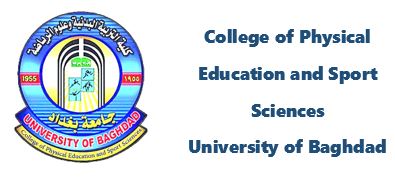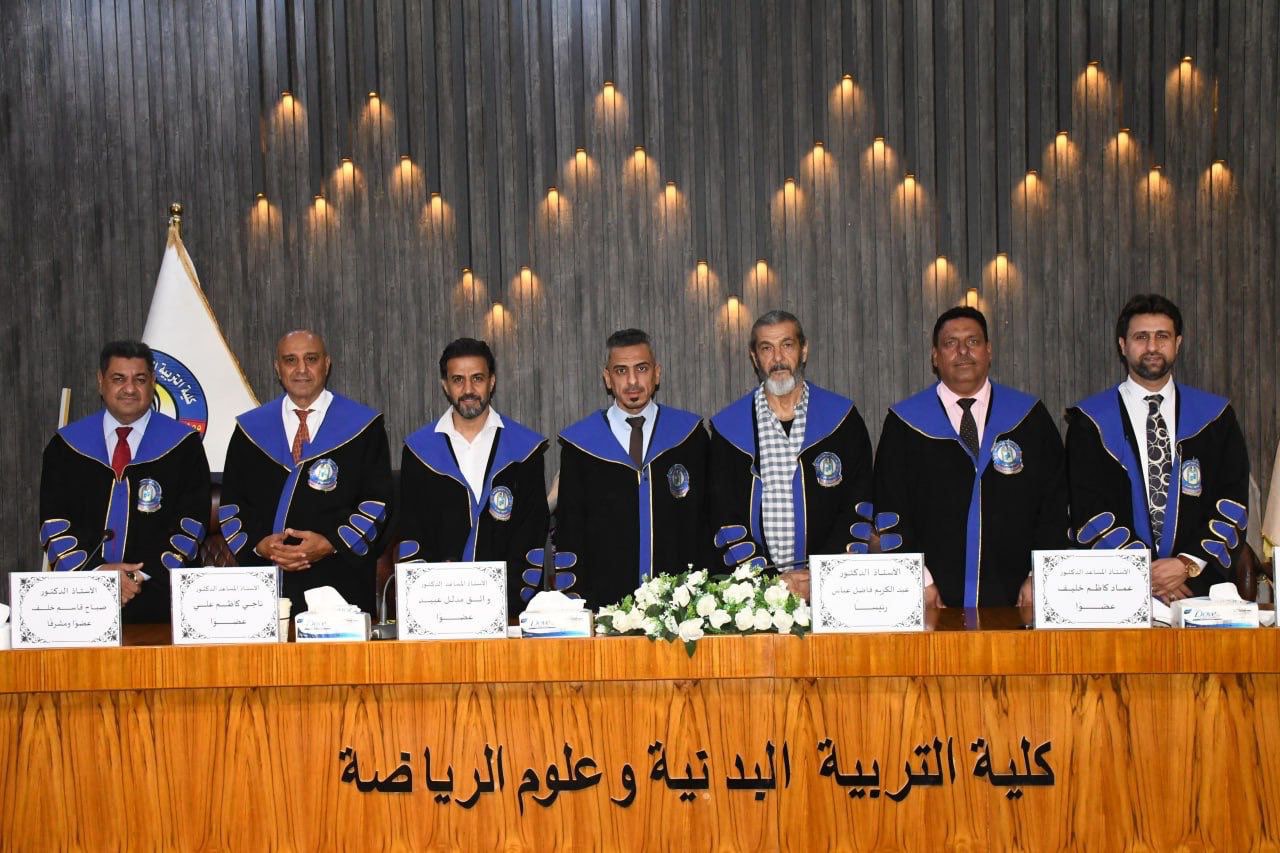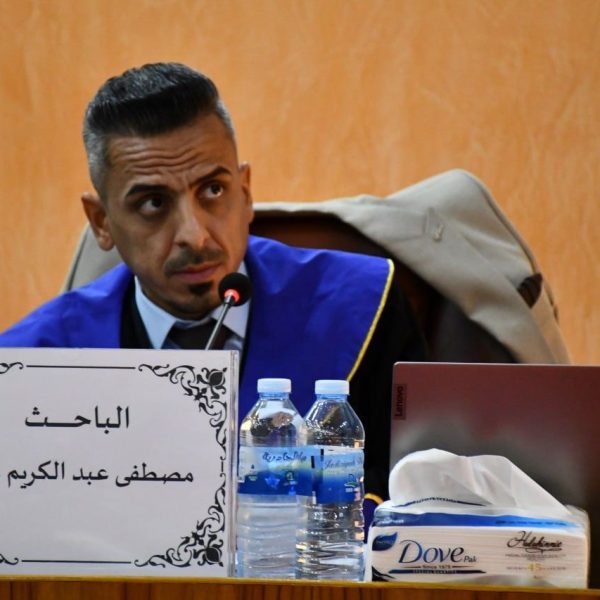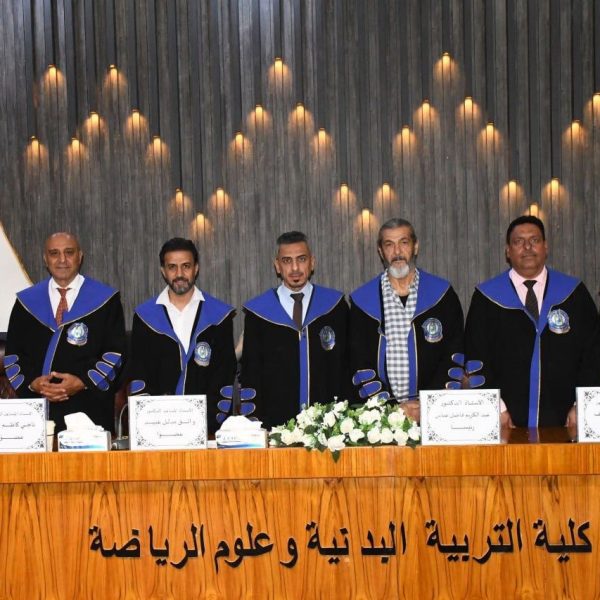A Ph.D. dissertation by student Mustafa Abdulkarim Mihanna was discussed at the College of Physical Education and Sports Sciences, University of Baghdad. The dissertation, titled “The Impact of Two Training Methods on Certain Physical and Cognitive Abilities in Passing Readiness Tests for Main and Assistant Referees in the Iraqi Premier League,” specializes in “Sports Training – Football.” The discussion committee included:
The research hypotheses proposed that there are no statistically significant differences between pre- and post-tests for main referees, and no statistically significant differences between pre- and post-tests for assistant referees. The researcher reviewed related literature and studies, focusing on topics relevant to the research. The experimental approach involved a one-group pretest-posttest design with a deliberately selected sample of 30 first-class referees from Baghdad for the 2022-2023 season. Physical and cognitive tests were conducted, followed by the application of two training methods over eight weeks, consisting of 24 training units at a rate of three units per week.
The researcher concluded that there are statistically significant differences between the pre- and post-tests for the study samples of main and assistant referees. Based on these findings, the researcher recommends using readiness tests for main and assistant referees during competitions and between the first and second stages of the Premier League. It is suggested that readiness tests be conducted at least once a month to measure referees’ endurance levels and ensure continuous training.











